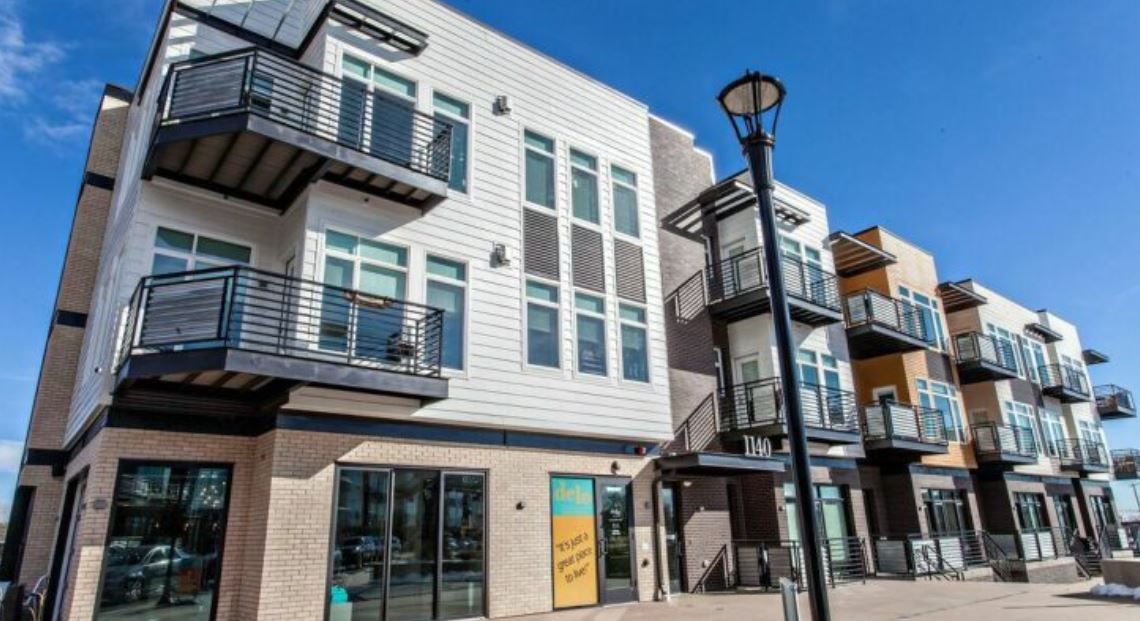RE Summit: Rising rates expected to slow housing market’s ongoing heat up

The homebuying market will keep growing through 2023 in the U.S., but it won’t be growing at the tremendous rates seen during the deepest months of the pandemic.
That’s the assessment from Joel Kan, the associate vice president of economic and industry forecasting at the Mortgage Bankers Association during a presentation at BizWest’s Northern Colorado Real Estate Summit Thursday morning.
Economic rebound and pent-up spending
Kan said as the broader economy starts to recover from the pandemic as the public gets vaccinated and in-person service sectors restart, Americans who remained employed over the past year will have plenty of disposable income from a combination of spending less in the last few months, getting federal stimulus dollars and saving more aggressively during the crisis.
SPONSORED CONTENT
He expects a fast recovery in the unemployment rate and gross domestic product in the latter half of the year, which should boost consumer sentiment.
Rates expected to rise, originations expected to fall
Although Federal Reserve chairman Jerome Powell has said repeatedly in recent months that he hopes to keep the federal funds rate near 0% to keep credit flowing through the economy until its goals on unemployment are reached, Kan is expecting several other key rates to rise over the next few years.
Kan predicted that inflation will rise between 2.2% and 2.5% yearly through 2023 due to a combination of high government spending to combat the economic freeze from stay-at-home orders and a strained supply chain making key commodities harder to acquire.
Those figures are a few tenths of a percentage point over the Federal Reserve’s mandate to keep inflation at 2% per year.
He also expects yields on 10-year treasury notes to rise from about 1.9% in 2021 to 3.2% in 2023 and the 30-year mortgage rate average to rise from 3.6% to 5% during the same time period as consumer confidence increases alongside economic conditions that aren’t hampered by the threat of contracting COVID-19 in close-quarters environments.
With those rates increasing, Kan expects the rate of refinancing to fall from $2.39 trillion in 2020 to more than $1.51 trillion in 2021 before declining steeply to $573 billion. He attributes that prediction partly to higher rates making refinancing less attractive, along with a lot of homeowners already having refinanced last year.
He also expects total originations to drop from an expected $3.18 trillion in 2021 to an estimated $2.29 trillion in 2023.
Homebuying will grow, but not as fast as before
However, Kan predicts that overall home sales will slow down from the hot and rapid markets of 2020 and 2021, but rise from a combined estimate of 7.35 million homes sold in 2021 to just more than 7.55 million in 2023.
He expects a lot of that housing demand to come from millennials and younger generations that are reaching peak homebuying age, along with estimates that those generations are more interested in moving to the suburbs than previously thought, he said using research from the Cleveland Federal Reserve branch.
He also mentioned that the Denver metro area is one of the top five cities in the U.S. in terms of people moving out, which may be attributable to the availability of remote work during and after the pandemic, along with a demand for more living space.
“You have young renters choosing not to move into urban areas,” he said. “I don’t know if they’re still staying at home with their parents, but they’re certainly not moving into cities to rent. But I think we’re also seeing it in home buying.”
Those factors combined with supply chain bottlenecks and increasing material and labor costs will likely keep home prices soaring and homebuilders unable to keep up with demand. Kan said home price sales increased 12% year-over-year in January, a rate that’s helpful for current homeowners and a hindrance for new or less-affluent buyers.
“I think it’s unsustainable, just sort of given how high mortgage rates are going, given the income growth despite the stimulus, hasn’t been growing at 10% rates,” he said. “That’s obviously going to pose a problem for affordability, but at the same time, it’s going to help home equity.”
© 2021 BizWest Media LLC
The homebuying market will keep growing through 2023 in the U.S., but it won’t be growing at the tremendous rates seen during the deepest months of the pandemic.
That’s the assessment from Joel Kan, the associate vice president of economic and industry forecasting at the Mortgage Bankers Association during a presentation at BizWest’s Northern Colorado Real Estate Summit Thursday morning.
Economic rebound and pent-up spending
Kan said as the broader economy starts to recover from the pandemic as the public gets vaccinated and in-person service sectors restart, Americans who remained employed over the past year will have plenty of disposable income from a…
THIS ARTICLE IS FOR SUBSCRIBERS ONLY
Continue reading for less than $3 per week!
Get a month of award-winning local business news, trends and insights
Access award-winning content today!




